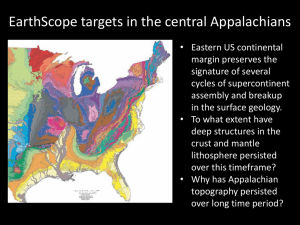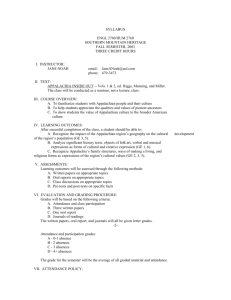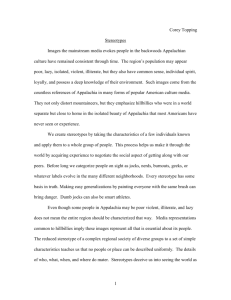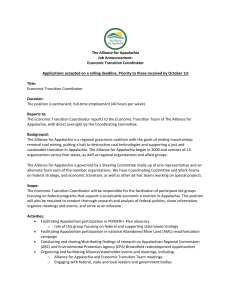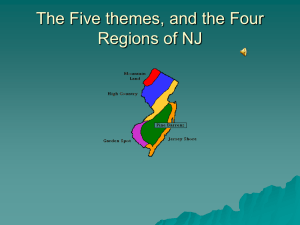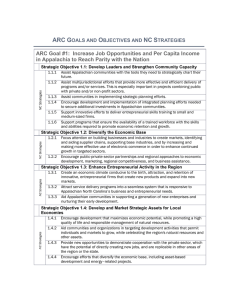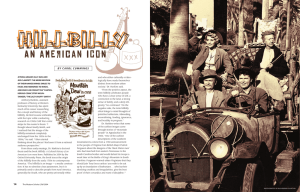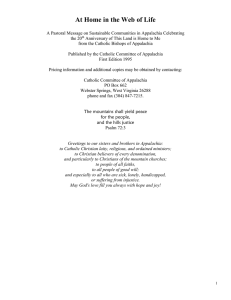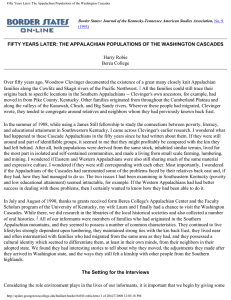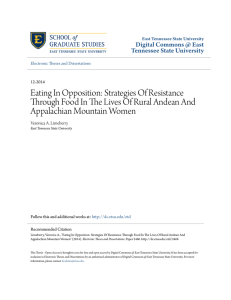Kentucky Studies Name:________________________
advertisement
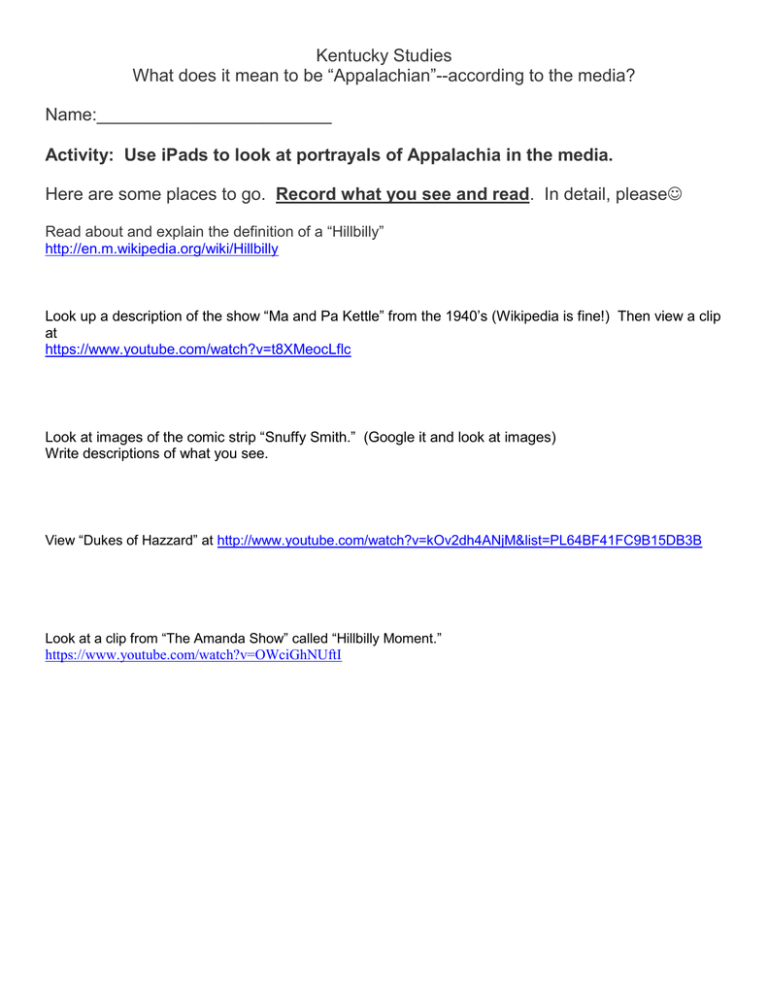
Kentucky Studies What does it mean to be “Appalachian”--according to the media? Name:________________________ Activity: Use iPads to look at portrayals of Appalachia in the media. Here are some places to go. Record what you see and read. In detail, please Read about and explain the definition of a “Hillbilly” http://en.m.wikipedia.org/wiki/Hillbilly Look up a description of the show “Ma and Pa Kettle” from the 1940’s (Wikipedia is fine!) Then view a clip at https://www.youtube.com/watch?v=t8XMeocLflc Look at images of the comic strip “Snuffy Smith.” (Google it and look at images) Write descriptions of what you see. View “Dukes of Hazzard” at http://www.youtube.com/watch?v=kOv2dh4ANjM&list=PL64BF41FC9B15DB3B Look at a clip from “The Amanda Show” called “Hillbilly Moment.” https://www.youtube.com/watch?v=OWciGhNUftI NOW…. I will assign you an editorial article reflecting on what these portrayals mean. (1) http://www.appalachianhistory.net/2009/03/hillbilly-stereotypes-picking-up-pine.html (2) http://stereotypesinapp.wordpress.com/stereotypes-of-appalachia/ (3) http://www.usaonrace.com/feature-stories-latest-news/3270/appalachian-mountain-people-a-study-ofstereotypes.html What specific stereotypes does your article address and how does the author argue against them? Write a thoughtful, well-composed paragraph on what your impression is regarding the way the media presents Appalachia. (Once you get beyond the “humor”, what impact do you think it has on this region?) Confronting Appalachian Stereotypes: from: http://kasamaproject.org/race-liberation/3395-27the-hillbilly-stereotype-razing-history-leveling-appalachia ….I’ve noticed that among acquaintances of mine, including radicals who claim to have firm understandings of privilege and oppression, stereotyping and making jokes about rural Appalachians is acceptable. While these same friends call people out for enacting other forms of oppression, they don’t consider making derogatory comments about hillbilly culture as part of the same paradigm of racist-classist-patriarchal-capitalist-white supremacy they are fighting against. Do radicals and progressives engage in this kind of dialogue because they think it’s all right to make fun of a cultural group commonly assumed to be homogeneously white and racist? Is it fine for individuals from affluent, cosmopolitan areas to make fun of rural whites, who are primarily money-poor? As an anti-mountaintop removal activist currently living outside of Appalachia, challenging mainstream cultural assumptions about the region is a critical part of my work against strip mining. Admittedly, I don’t always do this well. I’ve sometimes found myself staying quiet when hillbilly jokes are made, afraid of seeming argumentative or overly politically correct. These are poor excuses, especially because commonly held cultural assumptions about Appalachians are not harmless. They are part of what allows destructive practices like mountaintop removal, which has leveled over four hundred peaks across the region and sullies its air and water, to occur. Let’s face it: Many Americans see Appalachian people as expendable. Consciously or not, when we stereotype them as white, poor, uneducated, backward, patriarchal and racist we are justifying our comfort (the comfort brought to us from light and heat via mountaintop removal coal) at the expense of Appalachians dying from poisoned air and water. Many Appalachian activists have suggested that if mountaintop removal were happening in more culturally important or affluent areas, it would not be tolerated….. Appalachian activism, culture and values have had tremendous impacts on life in the United States. Union coal miners put their lives on the line, and sometimes lost them, for worker’s rights, and we have reaped the rewards of their legacy. The miners who fought in the Battle of Blair Mountain, the largest labor insurrection in United States history, laid the foundation for a national movement that eventually won the eight-hour day, weekends and minimum wage. Appalachians were pioneers of popular education, founding the Highlander Folk School and settlement schools, and were critical leaders and allies in the Civil Rights Movement. Appalachia gave us the olde tyme music, the liberal hipness of Asheville, North Carolina and an anarchic spirit of resistance all but dead in the contemporary United States. I am constantly awed and intimidated by the skills my friends who grew up in southern Appalachia possess– deep knowledge of the mountains, the land, traditional crafts and community history
